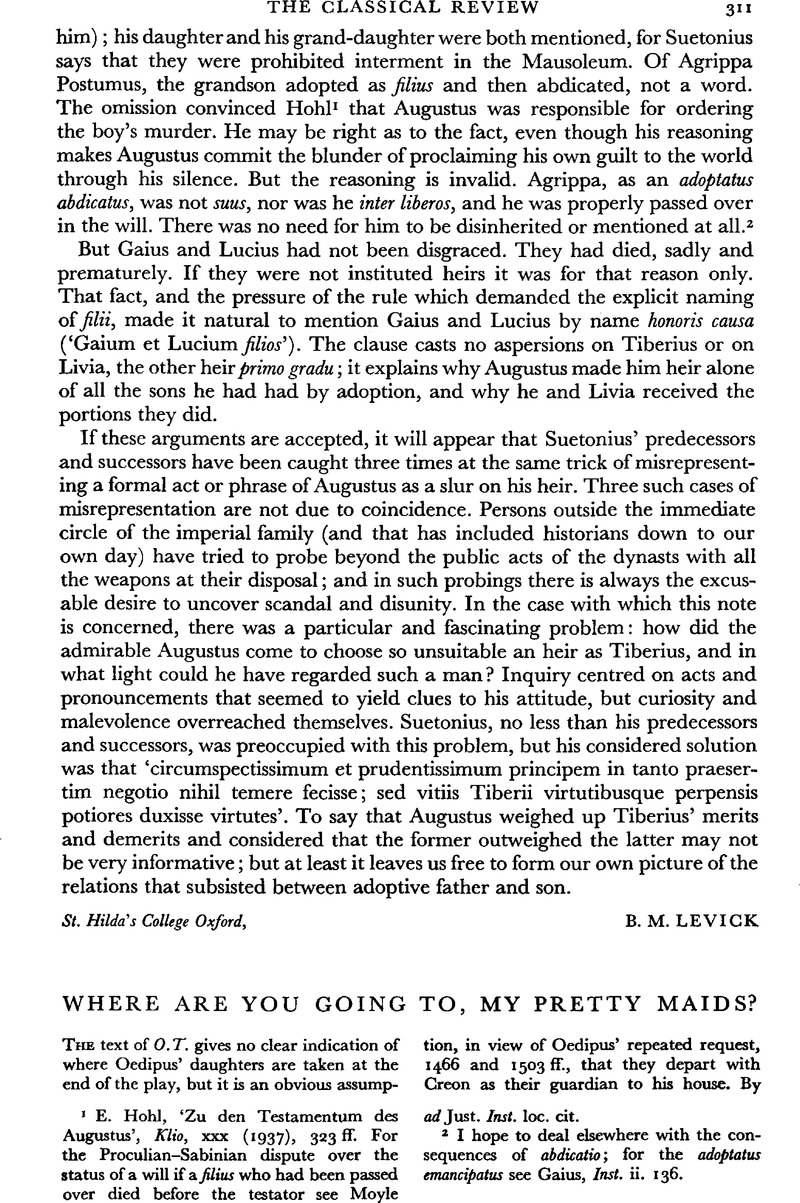No CrossRef data available.
Article contents
Where are You Going to, My Pretty Maids?
Published online by Cambridge University Press: 27 February 2009
Abstract

- Type
- Review Article
- Information
- Copyright
- Copyright © The Classical Association 1972
References
1 The note of anticipation introduced into 1477 by Campbell's punctuation (…εἶχεν,π⋯λαι.) is not necessary, but if it is accepted, then Creon's intuitive sympathy is even more gratuitous in view of his expressed intention to send Oedipus indoors at once.
2 More awkward, for example, than the motivation of Tiresias' entry, 316 ff. The seer, knowing what he did, and being unwilling to reveal it to Oedipus, would hardly have come at all. Sophocles therefore makes his arrival (just) tolerably plausible by having Tiresias admit to a lapse of judgement, 316–18.
3 Cf. Antig. 471–2. Antigone concludes her ‘unwritten laws’ speech by calling Creon a fool. This last piece of insolence, not the main content of the speech, prompts the response of the Chorus.
4 Sophocles can go to much greater lengths than this to avoid a theatrical traffic jam. In the Antigone he has Polynices buried by Antigone twice, the second time quite inexplicably, largely in order to space out Creon's political manifesto and Antigone's statement of her principles, both of which would, without the second burial, have to be presented together. O.T. 1510 is taken by Knox, B. M. W., Oedipus at Thebes (New Haven, 1957), 191Google Scholar, as a request to Creon to touch the girls: ‘Nod your head in sign of acceptance, noble man, touch them with your hand.’ This may be right, but only if Oedipus, with his arms round his daughters (1521), can feel Creon laying.


